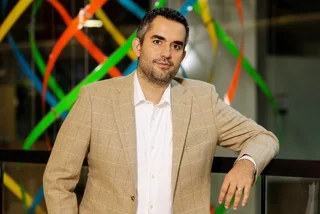Artificial intelligence (AI) could replace one-third of all jobs in the Czech tourism industry. Those were the words of the former director Jaromír Polášek of the South Bohemia Tourism Center at the Travelcon conference Thursday.
Automated check-ins
At present, there are roughly 215,000 full-time workers in the Czech tourism industry – AI could mainly threaten the jobs of receptionists or middle hotel management.
According to Polášek, AI will soon be able to take care of guests’ check-ins at hotels or guesthouses. People will also be able to order food and other services purely via AI. Polášek referenced the fact that large hotel chains operating in Czechia, such as Hilton or Marriott, already use automated check-in desks.
Are you worried that AI may take over your job in the next 10 years?
He also said that people in charge of evaluating numbers and data in the tourism industry are at risk of losing their jobs. Polášek used another case study – this time, from the Amazon retailer – to show that companies have already deployed AI to assess data and manage people.
A risk for the entire Czech workforce?
Czech society has mixed opinions on the prospect of AI potentially taking over thousands of jobs in the near future. An opinion poll by the Median agency found that 62 percent of Czechs were not afraid that AI would take their jobs. Those aged over 60 and people without higher education were most likely to be afraid of AI assuming many roles in the near future.
A 2018 study by Europass Czech Republic found that 51 percent of jobs in Czechia are exposed to a high risk of automation, 21 percent to a medium risk, and 28 percent to a low risk.
Interestingly, three-quarters of people in the survey said that they agreed with governmental regulation of AI development.
Government analysis in 2018 found that digitization and artificial intelligence could “take” up to 3.4 million jobs in Czechia in the next three decades. Following the release of the ChatGPT AI software – which threatens white-collar workers more so than their blue-collar counterparts – this figure is now likely substantially higher.
The European Commission is currently proposing its first legal framework on AI, in a bid to regulate the technology and prevent its misuse. The government of Prime Minister Petr Fiala has been relatively quiet on the topic so far – however, during a trip to Asia this week, Fiala said that he hopes to strengthen cooperation with Singapore on the topic of artificial intelligence.
The announcement this week that over 30 percent of tourism jobs are under threat from AI comes during a time when more questions are being asked about the technology's true capabilities, and what they could mean for Czechia’s workforce. Given its strong trajectory of efficiency, AI may well threaten thousands of Czech jobs shortly – unless government regulation prevents it.













 Reading time: 2 minutes
Reading time: 2 minutes 



























